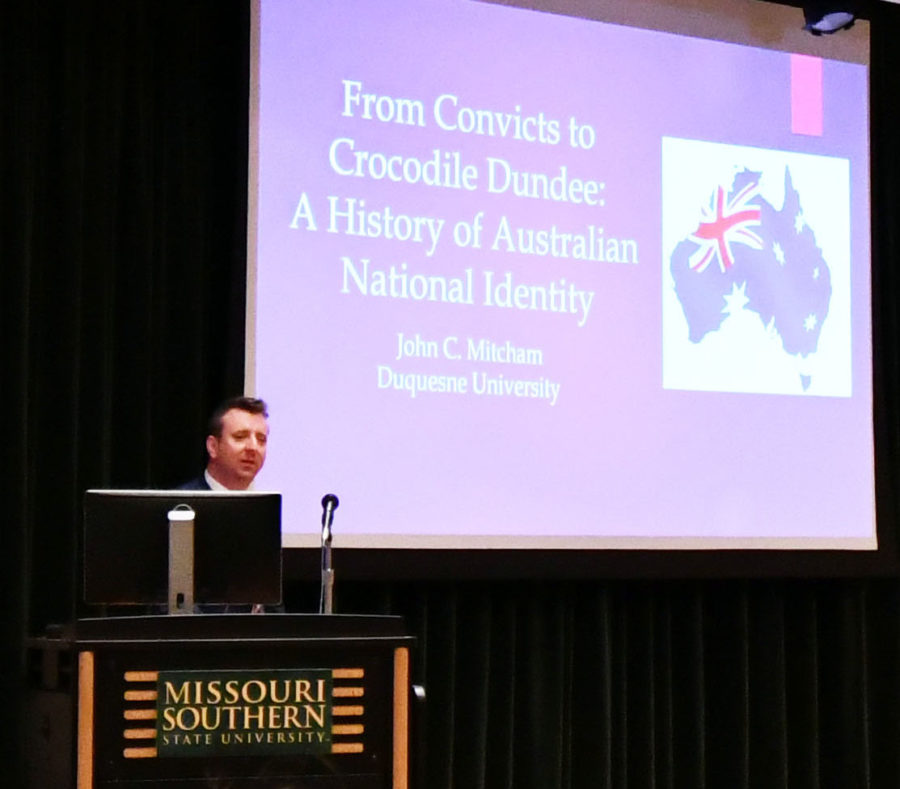Lecture dissects Australian national identity
John C. Mitcham, department of history chair and associate professor at Duquesne University presenting on Monday, Oct. 20 in Corley Auditorium.
An introductory presentation into the history of Australian national identity was held at 9 a.m. Monday, Oct. 30, 2019 in Corley Auditorium. According to John C. Mitcham, associate professor and department of history chair at Duquesne University, the formulation of an Australian identity has been continuing since its founding as a British penal colony in 1788.
Grappling with its founding a white colony was a dominant theme in Mitcham’s presentation, as he took the audience through his three main topics: Culture and the British Connection, Race and Ethnicity: A White Australia, and Gender: Masculinity and the “Bloke.” Mitcham quoted from many historical documents emphasizing Australia’s white identity in the years before WWII.
“National identities are, at least in part, based on stereotypes,” said Mitcham.
He told an anecdote to an audience of 30 about an Australian friend of his seeing an Outback Steakhouse commercial. He said she was shocked by it. She recognized the themes in the marketing ploy as being part of how some Australians perceive themselves yet was disgusted by the way it was presented in the marketing, according to Mitcham.
Toughness and the frontier mythos were emphasized repeatedly by Mitcham as being central to Australian self-concept. He pointed out that while people in Australia strongly identified as being British, they tended to view themselves as tougher and smarter than their relatives in Great Britain due in part to their relationship with the frontier.
According to Mitcham, the World Wars were extremely influential in forming cultural identity for Australia. Australia sent 400,000 soldiers to fight for the British Empire in WWI, and this helped reinforce the mythology of Australian ruggedness, he explained.
WWII represented a moment of stress in Australia’s alignment with Great Britain, said Mitcham. Australia had sent its army to fight for the British before Japan entered the war, with the agreement that Britain would use its navy to protect Australia.
However, by the time Japan entered the war the British navy was in no longer able to defend in the pacific, which was seen by Australia as a betrayal by Britain, according to Mitcham.
Mitcham said in the years since WWII Australia saw an enormous immigration boom largely from Europe, but from nations other than Britain. This began to challenge Australia clear identification with Britishness. The demographics in Australia have continued to shift and Australia has begun to grapple with the issues of colonial displacement of aboriginal peoples, he said.
Australians view themselves as the freest nation and value citizen involvement in governance to the extent that refraining from voting carries tax penalties in Australia, according to Mitcham. He said that while it would seem contradictory to impose voting, it does say something about the cultural value of civic involvement.
Your donation will support the student journalists of Missouri Southern State University. Your contribution will allow us to purchase equipment and cover our annual website hosting costs.




















